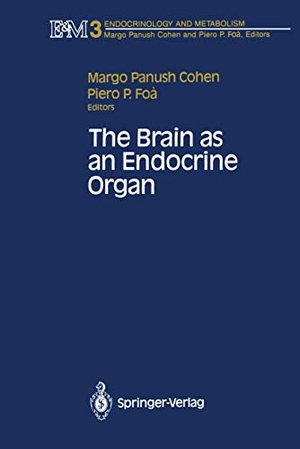Für statistische Zwecke und um bestmögliche Funktionalität zu bieten, speichert diese Website Cookies auf Ihrem Gerät. Das Speichern von Cookies kann in den Browser-Einstellungen deaktiviert werden. Wenn Sie die Website weiter nutzen, stimmen Sie der Verwendung von Cookies zu.
Cookie akzeptieren
The Brain as an Endocrine Organ
- Springer New York
- 2011
- Taschenbuch
- 284 Seiten
- ISBN 9781461281184
In the middle of the 17th century, the great French philosopher Rene Descartes wrote (L'Homme, J. Le Gras, Paris, 1669) that a suitable stimulation of the brain results in two types of "movements": exterior movements, designed to seek desirable ends and to avoid undesirable or harmful ones and interior movements or "passions" which through the release of "animal spirits" regulate the heart, the liver, and other organs. When it appears appropriate to meet a threat with force, the passion of rage causes the release of strong spirits, whereas when avoidance appears to be the better choice, the passion of fear causes the brain to release weak spirits.
Mehr
Weniger
zzgl. Versand
in Kürze